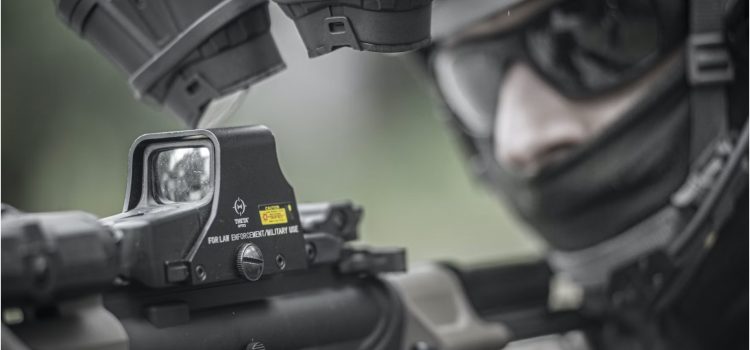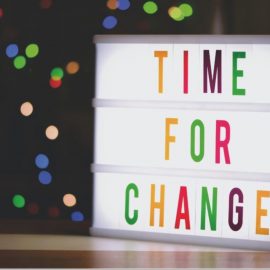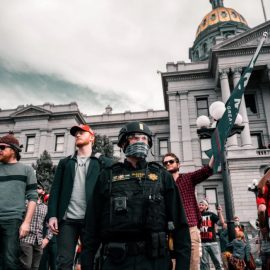
This is a free excerpt from one of Shortform’s Articles. We give you all the important information you need to know about current events and more.
Don't miss out on the whole story. Sign up for a free trial here .
What are NFA firearms? Why does the U.S. restrict purchases of NFA items? How are they purchased?
Gun laws in the United States are a subject of ongoing political debate and under federal law, certain types of firearms and certain activities related to firearms are subject to additional restrictions. Understanding the current laws is important, especially concerning the National Firearms Act (NFA).
Read on to learn what NFA firearms are, including each type of firearm and the rules for buying one.
What Are NFA Firearms?
The National Firearms Act, or NFA, defines a number of special classes of firearms that are collectively called “NFA firearms” or “NFA items.” The purpose of the NFA was to reduce the circulation of NFA items, because these items were iconic of gang violence and organized crime at the time the NFA was passed. So, what are NFA firearms? If you’re interested in learning more about NFA items or purchasing one, the below information will help to guide you. Note that some states and municipalities have additional laws. Also note that this article doesn’t constitute legal advice. If you need legal counsel, contact an attorney who is licensed to practice law in your state.
Purchasing NFA Firearms
Anyone who wants to buy or make an NFA firearm has to fill out a form requesting permission from the government and wait for the request to be approved before making the purchase or making the firearm. He also has to pay a ‘transfer tax’ to receive or make it. If he wishes to sell it later, the next buyer has to go through the same process and pay the transfer tax, even if it’s a private sale.
The government maintains a federal registry of all NFA firearms, which lists firearms by serial number and identifies their respective owners by name and address. Owners of NFA firearms are also required to retain proof of registration in their own records.
NFA Firearm Classifications
Based on U.S. Code Title 26 § 5845, the following items are considered NFA Firearms:
- Short-barreled shotguns: A short-barreled shotgun is any shotgun with a barrel less than 18 inches long. This includes handguns that have smooth-bored barrels and are designed to fire shotgun shells.
- Short-barreled rifles (SBRs): An SBRs is any rifle with a barrel less than 16 inches long. This does not include handguns with rifled barrels because in this context, the term “rifle” implies a weapon that is designed to be braced against the user’s shoulder for better accuracy when shooting. However, a modified handgun with an attached shoulder stock generally is an SBR.
- Suppressors: A suppressor, or “silencer,” is a device that attaches to the muzzle of a gun and muffles the sound of the gun firing. Even though a suppressor, by itself, cannot be fired, it is considered a “firearm” for registration purposes under the NFA, so, for example, someone who wanted an AR-15 rifle with a 12-inch barrel and a suppressor would have to fill out paperwork for two NFA firearms: the rifle (which is an SBR because of its 12-inch barrel) and the suppressor.
- Machine guns: A machine gun is any gun that can fire more than one shot each time the trigger is pulled. A component or set of components designed to convert a regular gun into a machine gun is also considered a machine gun, even if the components aren’t installed in a gun.
- AOWs: An AOW, or “any other weapon,” is basically a gun that is disguised to look like something else. For example, a pistol that is made to look like a fire extinguisher would be an AOW.
- Destructive Devices: A “destructive device” is basically an artillery weapon, and covers both the gun itself and ammunition for it. Any gun that fires a bullet more than half an inch in diameter is considered a destructive device. And any bullet that carries an explosive or incendiary payload larger than a certain weight is also, by itself, a destructive device. For example, each round of explosive ammunition for a grenade launcher is a destructive device. Under the NFA it doesn’t matter what gun, if any, the bullet is supposed to be fired out of, so a hand grenade is also a destructive device, as are improvised analogs, such as pipe bombs and molotov cocktails.
Exceptions to the NFA
The U.S. military and certain other government agencies are exempt from the NFA, so, for example, the army has its own system for keeping track of its inventory of machine guns and artillery, rather than registering them under the NFA.
Certain firearms that would otherwise be NFA items are also specifically exempted. For example, ordinary shotguns, muzzleloading rifles, and certain large-bore hunting rifles are not considered destructive devices, even though they fire bullets that are more than half an inch in diameter.
Closure of the Machine Gun Registry
In general, anyone who is not prohibited from owning firearms who fills out the necessary paperwork and pays the transfer tax can buy or make a new NFA firearm and register it. However, in the case of machine guns, only guns that are already in the registry can be bought and sold. People haven’t been allowed to register new machine guns since 1986, when Congress passed the Hughes amendment to the NFA.

Want to fast-track your learning? With Shortform, you’ll gain insights you won't find anywhere else .
Here's what you’ll get when you sign up for Shortform :
- Complicated ideas explained in simple and concise ways
- Smart analysis that connects what you’re reading to other key concepts
- Writing with zero fluff because we know how important your time is






